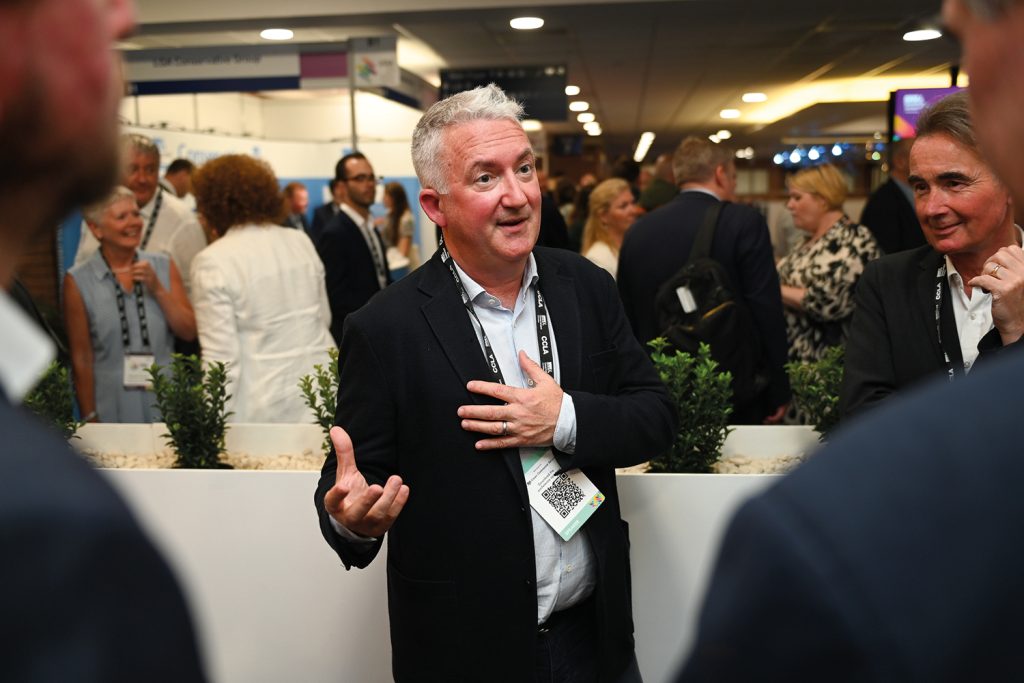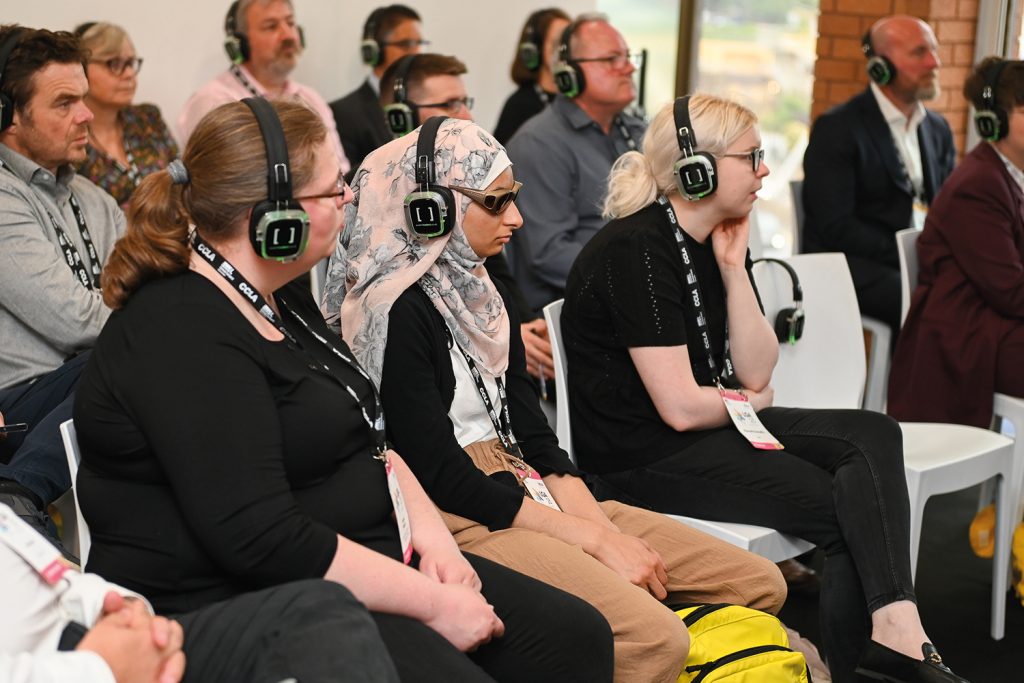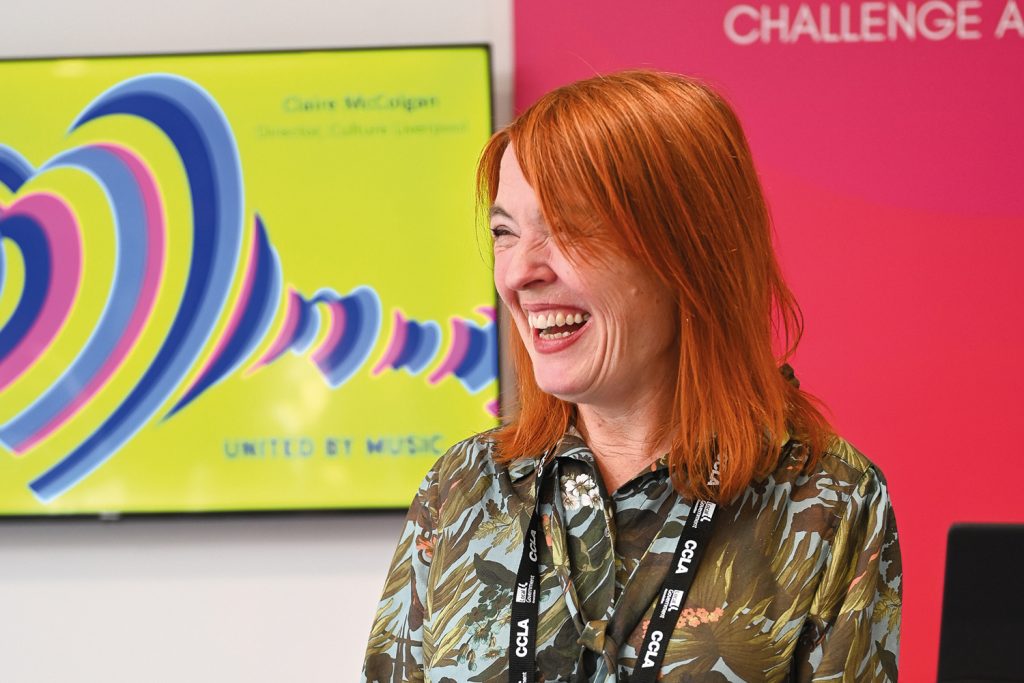From bears to the All-Blacks, this year’s Innovation Zone had it all
The LGA’s Innovation Zone at our 2023 annual conference was the biggest ever, and once again provided a huge platform for councils to demonstrate their ideas to drive improvement in the sector.
We were thrilled that so many councils were able to share their innovations with such a large and engaged audience.
And we were delighted to launch a programme full of great ideas with an inspirational session delivered by Claire McColgan CBE, Director of Culture Liverpool, who highlighted the importance of culture and how it helped the city secure and deliver the Eurovision song contest in May.
Across the country, councils are supporting vulnerable individuals and communities to mitigate the impacts of the current cost-of-living crisis.
The Innovation Zone (IZ) was proud to include ideas for others to use, including the excellent South Tyneside Pledge that demonstrated effective ways to build local partnerships to promote economic growth.
Leadership is critical to ensuring local government has the vision and momentum to deliver effective services and drive improvement.
The IZ had several sessions devoted to building leadership at all levels. These included an opportunity to learn about the LGA’s National Graduate Development Programme directly from graduates on the scheme; and a session, sponsored by Newton, led by author James Kerr on the secrets to success behind New Zealand’s All Blacks rugby team and the learnings that can be taken from their approach.
Meaningful engagement with residents is a top concern for local authorities, and the IZ hosted multiple sessions devoted to this issue.
The theatre company Stan’s Café, with Birmingham City Council, showcased ‘All our money’, its nationally praised play featuring a six-foot teddy bear called Bordesley. The play is an excellent example of an alternative way to engage with and inform the public – in this case, about the council’s budget.



Nesta, the UK innovation agency for social good, presented its ‘Strategy Room’ with Southend-on-Sea City Council, representing a new approach to policy and decision-making.
Finally, the IZ was again host to many interesting climate change ideas.
Our Climate Change Panel (pictured, top), was the most popular session across the three days, demonstrating the Centre for Alternative Technology’s innovation labs, Local Partnerships’ greenhouse gas accounting tool, and Westminster’s environmental justice measure.
We also hosted fantastic ideas on helping councils meet net zero, adapt to climate change and tangibly ensure environmental benefits are incorporated into strategy.
The IZ continues to be a huge success, providing a hive of ideas and energy at the LGA’s annual conference; one session saw all 200-plus headsets in use, highlighting the sheer demand for learning.
“Meaningful engagement with residents is a top concern for local authorities”
The IZ featured 50-plus presentations, more than 100 speakers and over 40 different councils. It’s a credit to the many local authorities and organisations that contributed – including our sponsor Newton –just how popular, engaging and energic the IZ was.
Our sincere thanks go to the team at the LGA who made this year’s IZ possible and such a success.
For those who missed out or want to revisit some of the learning from the IZ, PowerPoint presentations will be available on the LGA website shortly; some annual conference sessions are already available on the website.
The climate tools of the future
As the climate emergency continues, understanding where your organisation is in terms of its impact on the planet and the ways it can improve is going to be critical to reaching local and national net zero goals.
The Innovation Zone’s climate change panel at the LGA’s recent annual conference highlighted the exciting new array of tools and training available for councils to help understand their current position, measure their emissions, and review how climate change impacts their communities.
The panel discussed the value of accurate tools when developing plans to tackle the climate emergency, and how drilling down into the detail on carbon emissions means resources can be used more effectively.
Many of the tools are free for councils to use or try developing for themselves.
For example, Local Partnerships and the LGA have created a greenhouse gas accounting tool to help local authorities understand their most significant sources of emissions, which can then be used to prioritise actions to reduce them.
Also featured is a waste emissions calculator, developed by Cambridgeshire County Council and University College London through the LGA’s Net Zero Innovation Programme.
The Centre for Alternative Technology in Powys, Wales, has developed carbon literacy training specifically designed for local authorities. The training covers the science of climate change, local and global impacts and how these will affect the work and duties of local authorities.
Carbon literacy is an awareness of the carbon costs and impacts of everyday activities and the ability and motivation to reduce emissions, on an individual, community and organisational basis.
The climate change panel also heard from officers at Westminster City Council, who have created an ‘environmental justice measure’ – a tool that maps 10 environmental indicators, including air quality, building standards, proximity to green spaces and flood risk. This data is then combined with existing information about social, economic, educational and health outcomes.
Using this data, the council found that families living in some of its more deprived communities face the largest number of environmental risks.
The council has used its findings to identify priority areas for environmental improvements, from retrofitting inefficient buildings to informing air quality monitoring and green space improvements.
Councils can contact Westminster for the blueprint of its tool.
As Pedro Wrobel, Executive Director, Innovation and Change, at Westminster City Council, concluded: “We’re all in this fight together, and we need to share our knowledge.”
- Find out more about the LGA’s support offer for councils and/or contact the principal adviser for your region.